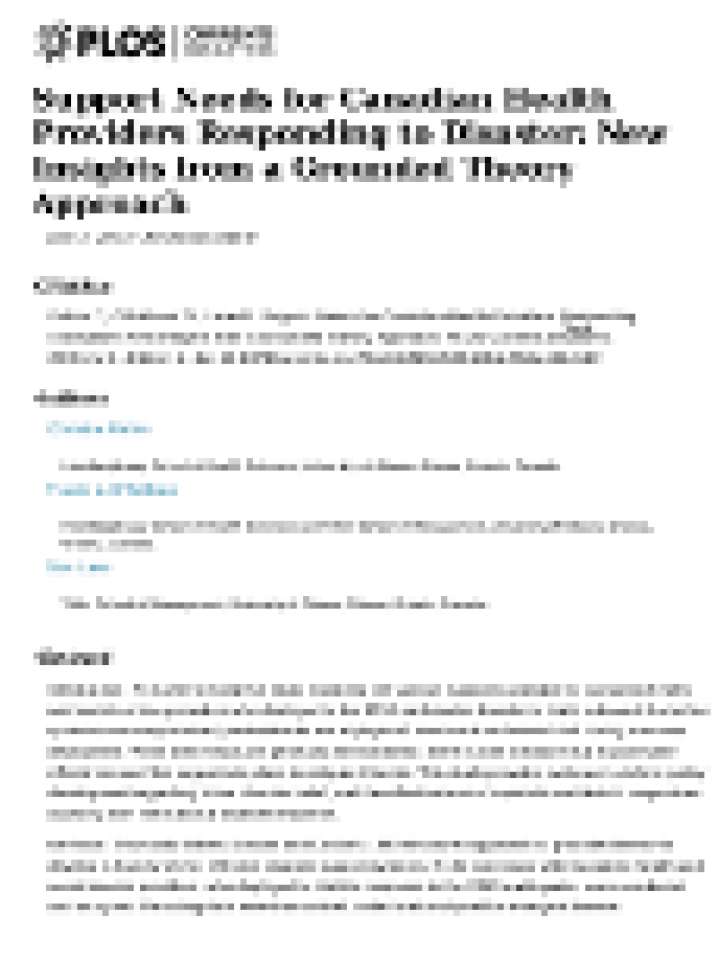Support needs for Canadian health providers responding to disaster: new insights from a grounded theory approach
PLOS Currents Disasters, July 2015, Edition 1. doi:10.1371/currents.dis.79dc64efd8e2af3488a126afa464c5d7
This study provides evidence to inform policy development regarding future disaster relief, and the effectiveness of supports available to responders assisting with international disaster response. It follows Strauss and Corbin’s 1990 structured approach to grounded theory to develop a framework for effective disaster support systems. 21 interviews with Canadian health and social service providers, who deployed to Haiti in response to the 2010 earthquake, were conducted and analyzed. Resulting data were transcribed, coded and analysed for emergent themes.
The results indicate that the experiences of responders are determined based on an interaction between the individual’s ‘lens’ or personal expectations, as well as the supports that an organization is able to provide. Therefore, organizations should consider the following factors: experience, expectations, and supports, to tailor a successful support initiative that caters to the needs of the volunteer workforce.
Explore further
